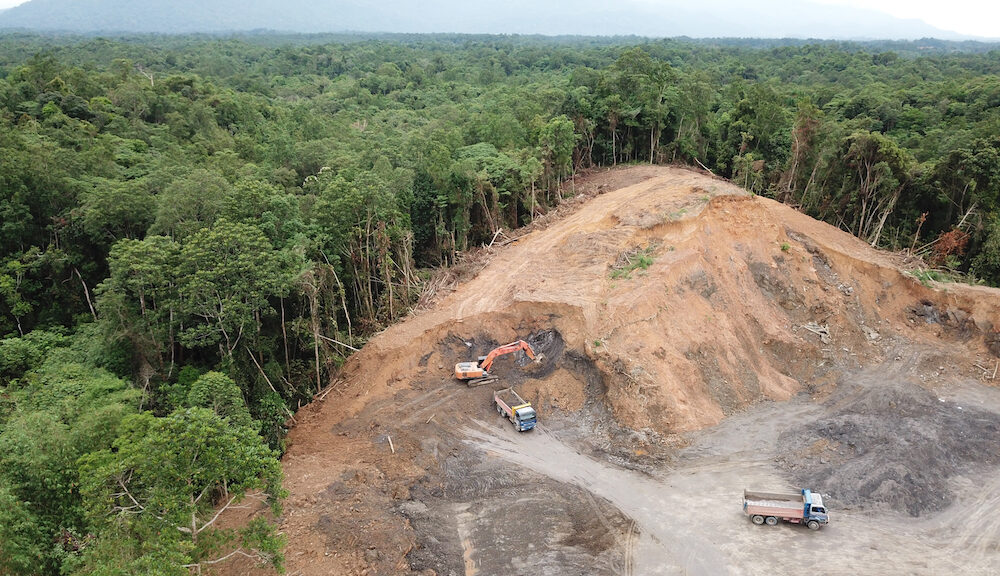The destruction of the world’s rainforests has long been framed as an environmental problem. Extractive logging, mining, and agricultural practices have led to the loss of millions of acres of wildlife and have emitted massive quantities of carbon dioxide (CO2) into the atmosphere.
But for years, activists have argued that there are deep human costs to rainforest destruction as well. Many people who live in these regions have seen their homes destroyed, resources depleted, and lifestyles pushed further to the fringe—all while government and corporate powers dismiss these groups as too small to be worth political consideration.
According to a new study published by researchers from Germany, Argentina, the Netherlands, and Canada, including some from McGill, the human costs of deforestation and agricultural expansion in the Gran Chaco region of South America may be even more devastating than initially thought.
Using satellite imaging technology, the research group identified and tracked the number of homesteads in South America’s Gran Chaco region over a course of 30 years to trace changes in the number of forest-dependent inhabitants. Between 1985 and 2015, they found that the number of people living in this region declined by 20 per cent, from 28,000 to 23,000 homesteads. Most of the exodus occurred in areas that saw the rapid agricultural expansion of activities like cattle grazing, crop planting, or logging.
Yann le Polain de Waroux, an associate professor in McGill’s Department of Geography, explores the way that different social, political, and industrial actors interact at natural frontiers. Le Polain de Waroux has spent time studying different players in the agricultural expansion conflict, looking at both industrial-scale South American farming companies and local Indigenous groups.
“I’m interested in spaces where there’s incredible tension between groups with different objectives,” le Polain de Waroux said in an interview with The McGill Tribune.
Gran Chaco certainly fits the bill. The region has been a site of intense conflict for decades between industry and forest-dependent peoples, including mestizos, or mixed European-Indigenous homesteaders, and Creole groups, who are the direct descendants of original Spanish settlers who have long traditions of living off the land.
Over the last few decades, the amount of uncultivated land in Gran Chaco has dramatically declined. With increased global demand for beef and crops like soy, South American farmers have sought new land to maintain supply. The public narrative surrounding this shift often claimed that these lands belonged to no one, and that there was no harm in converting it to agricultural use. However, le Polain de Waroux points out that this narrative was never based in reality.
“These territories have often been constructed by outsiders as empty [land],” le Polain de Waroux said. “This [research] shows that there is a real loss to people when we expand.”
Though some of the displacement of forest-dependent peoples is driven by the lack of basic resources like formal education or electricity, as well as the exodus of young people seeking work in the city, many living in Gran Chaco say the recent intrusion by outsiders is to blame.
“The majority perceives it as an attack on their livelihoods and their territories,” le Polain de Waroux said. “Some see [the displacement of forest-dependent peoples] as inevitable, but still as encroachment.”
Those most at risk—the Indigenous and Creole populations—are also those with the least social and political capital. In recent years, there have been efforts by environmental non-profits and grassroots organizers, such as the World Wildlife Fund and The Nature Conservancy, to preserve the land that these groups depend on. However, le Polain de Waroux maintains that the future of Gran Chaco is uncertain.
“In terms of what I think will happen, there’s good reason to think that expansion of cattle lands and croplands will continue at the expense of woodlands,” he said. “[But] there’s also good reason to think there will be some woodlands that will be preserved.”
Le Polain de Waroux cited the success of social movements in promoting protective laws, pointing to a landmark 2010 law in Argentina that placed restrictions on the legal methods and limits of clearcutting. Another recent law in Paraguay requires that 25 per cent of all privately owned rural land be kept as forest.
Still, will this fragmented land be enough to support communities who depend on it?
“It’s extremely hard to say,” said le Polain de Waroux.
When it comes to solutions, le Polain de Waroux stressed that preserving the livelihoods of forest-dependent peoples is not a problem that can be solved through individual action alone. He explained that when responsibility for these problems is shifted to consumers, it can create feelings of guilt, which are counterproductive.
“These problems are collective action problems,” le Polain de Waroux said. “Perhaps [we should] recognize that some of this is happening and we have zero control over it.”
In addition to choices made by Canadian consumers, Russian demand for beef and Chinese demand for soy are two major economic factors driving the expansion of South American agriculture.
Ultimately, le Polain de Waroux believes that change must happen at the institutional level. One way forward is demanding greater transparency in supply chains so that consumers and regulators understand the social and environmental impacts of agricultural products.
Demand for agricultural goods is predicted to increase by 70 per cent by 2050. Policy makers and agribusiness will need to innovate their practices in order to meet demand for food without doing further damage to the world’s forests and those who depend on them.
“There’s no such thing as empty land,” said le Polain de Waroux.
It’s a truth that policy makers would do well to remember.








